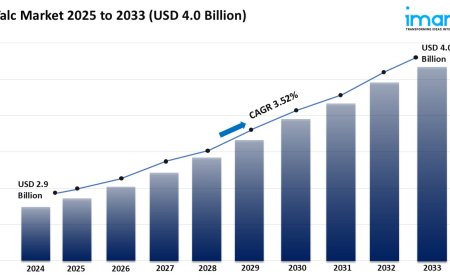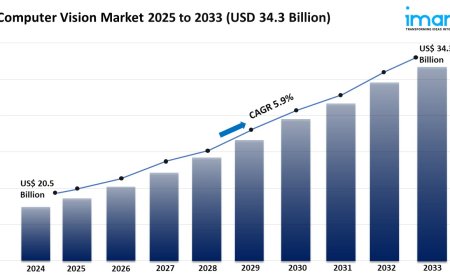Leveraging MCA Data to Analyze FMCG and Dairy Industry Trends
Discover how MCA Master Data and Indian Company Data enable researchers to analyze trends in FMCG and dairy companies like Mondelez India, Nestlé India, and Amul.

In todays fast-evolving business landscape, researchers, analysts, and industry professionals rely on robust corporate data to uncover industry trends, market dynamics, and competitive strategies. Data sources like MCA Master Data, Indian Company Data, Company Financials, and Directors DIN No. provide critical insights for comprehensive analysis. Platforms such as MCA Master Data offer access to CIN Numbers, Compliance Data, and detailed corporate records, enabling researchers to study Indias dynamic corporate ecosystem. This post explores how MCA data drives research success, with a focus on three iconic companies in the Indian FMCG and dairy sectors: Cadbury India (now Mondelez India Foods Private Limited), Nestl India Limited, and Amul (Gujarat Cooperative Milk Marketing Federation Ltd.). By leveraging MCA data, researchers can gain actionable insights into these companies financial performance, leadership, and compliance trends.
The Value of MCA Data for Research
MCA Master Data is a treasure trove of information, offering access to Company Financials, Directors DIN No., Compliance Data, and other critical metrics for over 2.5 million registered companies in India. This vast repository enables researchers to analyze companies like Mondelez India Foods (CIN: U15430MH1948PTC006457), Nestl India (CIN: L15202DL1959PLC003786), and Amul (CIN: U14101GJ1995PTC026118) to uncover trends in the FMCG, confectionery, and dairy industries. By studying these companies, researchers can identify patterns in revenue growth, market expansion, regulatory compliance, and leadership strategies.
MCA data is particularly valuable because it provides standardized, reliable, and up-to-date information. For instance, researchers can access financial statements, annual reports, and compliance records to evaluate a companys performance over time. Additionally, Directors DIN No. data offers insights into the leadership behind these organizations, shedding light on their expertise and influence in shaping industry trends. This comprehensive dataset empowers researchers to conduct both qualitative and quantitative analyses, making it an indispensable tool for academic studies, market research, and industry reports.
Benefits for Researchers
MCA data offers several key benefits for researchers studying companies like Cadbury, Nestl, and Amul. Below are some of the primary advantages:
-
Trend Analysis: Indian Company Data reveals sector-specific growth patterns. For example, analyzing Nestl Indias financials highlights its expansion in the packaged foods and beverage market, particularly with products like Maggi noodles and Nescaf coffee. Similarly, Amuls data showcases its dominance in the dairy sector, with innovations like flavored milk and ice cream driving growth.
-
Financial Insights: Company Financials provide a deep dive into revenue, profitability, and investment trends. For instance, Mondelez India (Cadbury) reported revenues of approximately $1.2 billion in recent years, driven by its iconic Dairy Milk brand. Nestl Indias financials reflect a revenue of over $2 billion, while Amuls cooperative model has generated revenues exceeding $6 billion annually.
-
Leadership Study: Directors DIN No. data allows researchers to study the leadership behind these companies. For example, analyzing the DIN of key directors at Nestl India (e.g., Rajya Vardhan Kanoria, DIN: 00003792) reveals expertise in driving FMCG growth. Similarly, Amuls leadership under Sureshkumar Keshavjibhai Santoki (DIN: 00132139) highlights cooperative governance in the dairy sector.
-
Compliance Trends: Compliance Data from MCA Master Data tracks regulatory adherence, offering insights into how companies navigate Indias complex legal framework. For instance, Mondelez Indias compliance records reflect its alignment with food safety regulations, while Amuls data highlights its adherence to cooperative society laws.
By leveraging these benefits, researchers can uncover actionable insights into the FMCG and dairy industries, informing academic papers, industry reports, and strategic business decisions.
Accessing MCA Data
Accessing MCA data is straightforward, thanks to user-friendly platforms like MCA Master Data. Below is a step-by-step guide to retrieving data for companies like Cadbury, Nestl, and Amul:
-
Use Platforms: Visit the MCA Master Data website or explore its dedicated sections, such as the newest companies page. These platforms provide easy access to company records, financials, and compliance data.
-
Search CIN: Use the CIN Number to retrieve detailed information. For example, searching Mondelez Indias CIN (U15430MH1948PTC006457) provides access to its financial statements, annual reports, and compliance records. Similarly, Nestle Indias CIN (L15202DL1959PLC003786) and Amuls CIN (U14101GJ1995PTC026118) unlock valuable insights.
-
Check Directors: Review leadership details on the directors page. For instance, analyzing Suresh Narayanans DIN (07246738) at Nestl India reveals his role in steering the companys growth. Likewise, Amuls directors data provides insights into its cooperative leadership model.
-
Study Compliance: Use Compliance Data to analyze regulatory trends. For example, Mondelez Indias compliance records highlight its adherence to FSSAI regulations, while Amuls data reflects its compliance with cooperative society norms.
By following these steps, researchers can access a wealth of information to support their analyses of the FMCG and dairy sectors.
Real-World Applications
MCA data has numerous real-world applications, enabling researchers to generate actionable insights across industries. Below are some examples of how MCA data can be used to study companies like Cadbury, Nestl, and Amul:
-
FMCG Market Trends: A researcher studying the confectionery market can use Mondelez Indias Company Financials to track investments in new products like Cadbury Fuse and Silk. By analyzing revenue trends, the researcher can identify growth opportunities in the premium chocolate segment.
-
Packaged Foods Growth: Analyzing Nestl Indias financials reveals the success of its Maggi brand, which rebounded from a 2015 crisis to achieve double-digit growth. Compliance Data further highlights Nestls adherence to food safety regulations, providing insights into its recovery strategy.
-
Dairy Sector Innovation: A researcher studying Amuls financials can track its expansion into value-added products like cheese, yogurt, and ice cream. Compliance Data reveals how Amul navigates cooperative society regulations, offering lessons for other dairy cooperatives.
-
Leadership Analysis: By studying Directors DIN No. data, researchers can evaluate the impact of leadership on company performance. For example, Rajya Vardhan Kanoria tenure at Nestl India has been marked by strategic innovations, while Amuls cooperative model thrives under Sureshkumar Keshavjibhai Santoki leadership.
These applications demonstrate how MCA data can inform academic research, industry reports, and strategic decision-making in the FMCG and dairy sectors.
Best Practices for Using MCA Data
To maximize the value of MCA data, researchers should follow best practices to ensure accuracy, relevance, and efficiency. Below are some tips for analyzing companies like Cadbury, Nestl, and Amul:
-
Use Filters: Explore the newest companies page on MCA Master Data to identify emerging players in the FMCG and dairy sectors. Filters for industry, revenue, or compliance status can help narrow down relevant data.
-
Validate Data: Cross-reference MCA insights with industry reports, news articles, and other credible sources. For example, validate Mondelez Indias financials with its annual reports or Nestl Indias performance with market research studies.
-
Focus on Metrics: Prioritize quantitative metrics like revenue, profit margins, and investment trends in Company Financials. For instance, analyzing Amuls $6 billion revenue provides a clear picture of its market dominance.
-
Collaborate: Share findings with industry peers, academic colleagues, or business stakeholders. Collaborative analysis can uncover new perspectives and enhance the impact of research.
By adhering to these best practices, researchers can ensure their analyses are robust, reliable, and impactful.
Challenges and Considerations
While MCA data is a powerful tool, researchers should be aware of potential challenges. For instance, data for private companies like Mondelez India may be less detailed than for public companies like Nestl India. Additionally, compliance records may vary in completeness depending on the companys reporting practices. To overcome these challenges, researchers should triangulate MCA data with other sources, such as industry reports, news articles, and expert interviews.
Another consideration is the need for regular updates. MCA data is dynamic, with new financials, compliance records, and director details added frequently. Researchers should check platforms like MCA Master Data regularly to ensure their analyses are based on the latest information.
Future of Corporate Data Analysis
As Indias corporate landscape continues to evolve, the role of MCA data in research will only grow. Emerging technologies like artificial intelligence and machine learning can enhance the analysis of MCA data, enabling researchers to identify trends with greater speed and accuracy. For example, AI-powered tools could analyze Company Financials to predict revenue growth for companies like Amul or Nestl India. Similarly, machine learning models could study Compliance Data to forecast regulatory changes in the FMCG sector.
Furthermore, the increasing availability of open data platforms will democratize access to corporate information, empowering more researchers to study companies like Mondelez India, Nestl India, and Amul. This trend will foster greater transparency and innovation in Indias corporate ecosystem.
Conclusion
MCA Master Data, Indian Company Data, Company Financials, and Compliance Data from platforms like MCA Master Data empower researchers to uncover industry trends with unparalleled depth and accuracy. By analyzing companies like Mondelez India (Cadbury), Nestl India, and Amul, researchers can gain insights into the FMCG and dairy sectors financial performance, leadership strategies, and regulatory compliance. Visit the directors page and newest companies page on MCA Master Data to access these insights and drive research success. Whether youre studying market trends, financial metrics, or leadership dynamics, MCA data is your key to unlocking the future of corporate analysis.

































